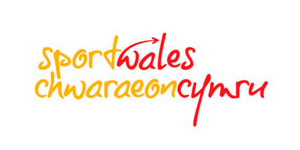Are you one of the very few sports’ governing bodies or the many thousands of individual sports clubs which are registered charities? Or, are you weighing up the possible advantages of becoming a registered charity?

Giselle Davies, Partner at Geldards LLP explains the benefits of charitable status…
From Archery to Yachting and almost all sports in between that you can think of you can search the Charity Commission register and find large numbers of examples of clubs which have decided that it is in their best interests to be a registered charity.
Many more have gone down the route of registering with HM Revenue and Customs as a Community Amateur Sports Club or CASC for short. Whilst this option does not grant charitable status it does provide some (but not all) of the same financial benefits.
I am frequently asked to advise on the advantages and disadvantages of registering as a charity with the Charity Commission and whilst there are certainly some responsibilities which go with the privilege of the registered charity number and some of the “advantages” are of questionable merit – increased public respect and confidence, for example – in the main it all comes down to finances.
Charities which occupy premises for their charitable purposes will be entitled to at least 80% Business Rates Relief and whilst some Local Authorities do currently grant the same relief on a discretionary basis to some sports clubs which are not charities, in times of austerity no one should rely on that discretion always being exercised favourably!
Income received by charities from trading in furtherance of the charitable purposes (class fees for example), renting out property, selling donated goods, trading to raise funds under the “small trading” threshold (e.g. sales of Christmas cards, wristbands, etc within certain limits), registered charity lotteries or from fundraising events such as fetes, balls or car boot sales will all benefit from tax exemptions. Clubs which are not charities or CASCs will pay corporation tax on their profits making it difficult to build up reserves or save for a rainy day. Neither do charities pay tax if they make a gain/profit on a property disposal and if they are buying property, they don’t pay Stamp Duty Land Tax.
Donations to the charity club will benefit from Gift Aid which can swell the coffers by 25p for every £1 donated. Gift Aid can even be claimed on club membership fees in certain circumstances. The membership fee on which Gift Aid can be claimed must not be for the use of the charity’s facilities or services (so where the “membership fee” is really a class, coaching or facility fee Gift Aid can’t be claimed) but can give the member other benefits such as newsletters and access to other charity activities. This benefit extends to a qualifying membership fee paid on behalf of a child.
There are also financial opportunities open to charities which are often closed to other types of clubs. Applying for grant funding, supermarket bag packing and other public fundraising opportunities can all benefit clubs in large and small ways depending on how adventurous you are in your thinking.
What is vital is not to close the door on these valuable advantages because you think that the responsibilities which go with being a charity will be too onerous.
For further information, please see our Business Support pages for our member helplines.



















